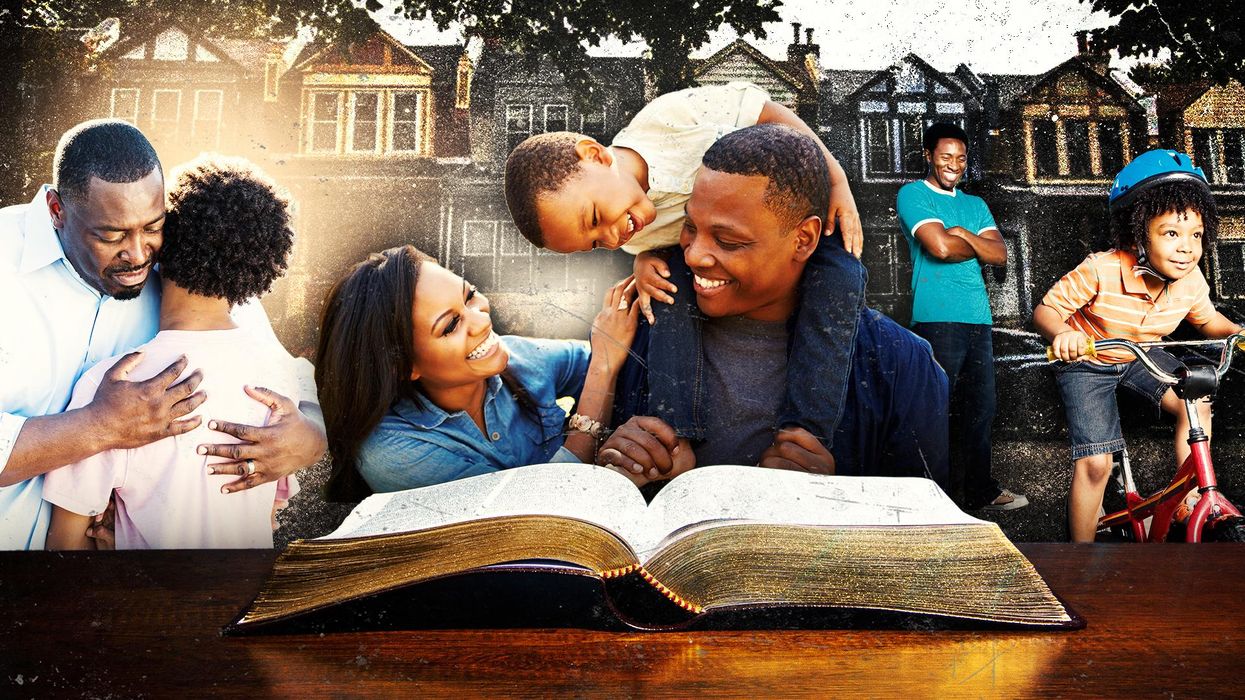
Getty Images

Al Sharpton’s recent crime summit in Harlem is a needed reminder that a few more black faces in the statehouse are not nearly as important as a black father in his own house.
The longtime civil rights activist convened a meeting with Mayor Eric Adams, New York state Attorney General Letitia James, Manhattan District Attorney Alvin Bragg, and several other prominent black leaders in New York City and state politics to discuss violent crime and public safety.
Like many large cities, in New York, most homicide victims and perpetrators are black. Unfortunately, street crime is a lot less likely to end up as a topic of discussion on CNN than police misconduct, but the city is battling the perception that it is descending into a state of chaos and disorder. While the city’s 433 homicides in 2022 represented an 11% decrease from 2021, major crimes were up 23%.
No one wants to live in the New York of the 1990s, where murders topped 2,000, so I am hopeful that meeting will bear good fruit over time. One thing I can (almost) guarantee is that very little attention will be given to the role families play in preventing crime.
I know from personal experience. I worked for over a decade in local government in Washington, D.C., and the final year was spent in the city’s gun violence prevention office.
It was a new initiative that mobilized the entire government to address gun crimes from a public health perspective. Prevention and intervention were major priorities because the consensus from criminal justice experts was that you couldn’t arrest your way out of the problem. The people leading the efforts to calm tensions after a shooting or connect a formerly incarcerated resident to job training were dedicated to their communities.
But there was one glaring omission from the violence prevention ecosystem that complicated our work: parents and families.
No amount of planning and strategizing about gun violence will be successful if elected officials and their advisers ignore the role families play in socialization and values development. When a teenage boy shoots and kills one of his peers, the first adults who should be held accountable for his actions are his parents, not teachers or social workers.
This all-encompassing view of government has functioned as a cultural steroid for decades, deforming the body politic by increasing the power of elected officials and unelected bureaucrats while the American family has atrophied.
A 13-year-old in Washington, D.C., was recently shot and killed after being confronted by a homeowner at 4 a.m. The boy has been described by one local media outlet as “tampering” with cars in the neighborhood before he was shot. The death of a teenager is a tragic event, regardless of the circumstances, but several commenters online led with some variation of the statement, “Property is not worth taking the life of a teenager” instead of the more obvious observation: a 13-year-old should be in bed at 4 a.m., not out attempting to steal cars.
This is not blaming the victim. It is placing responsibility where it belongs. We would hold a police chief responsible if his officers regularly engaged in illegal conduct in the line of duty. We would hold a principal responsible if multiple teachers in her school were caught having illicit sexual relationships with students. In the same way, we should hold parents accountable for the behavior of their minor children.
Unfortunately, if there is one thing liberals – including black elected officials – are allergic to, it is the notion that black people should be held responsible for anything we think, say, or do.
This is why their answers to every social ill in black neighborhoods always start with more funding for social service programs. To these leaders, black people don’t act of our own free will. We’re controlled by past trauma, present discrimination, and the degree to which our material needs are met.
Far too many intellectuals and politicians on the left speak and act as if moral reasoning and emotional regulation are for white people.
A white man caught on tape using a racial slur in frustration during an altercation with a black man is an evil bigot. A black man who uses a gun to settle his disputes with another black man is the victim of systemic disinvestment in his community.
This is the hard bigotry of no expectations.
This worldview is the farthest thing from empowerment. Getting more black politicians in office is a win for the people who worship at the altar of “representation," but it provides no tangible benefits to the people who live in high-crime neighborhoods. This is why I’m not nearly as excited about the fact that the mayors of the nation’s four largest cities are all black as some people may be. If the state of black family life doesn’t improve, that historical first will only mean changing the color of the people who have assumed the role of “daddy” in many neighborhoods.
Elected officials can change laws and make policy, but aside from incarceration, they can’t prevent a person from committing a crime. What they can do is enforce the law and make it clear that antisocial, criminal behavior will not be tolerated. They can also encourage the formation of strong families consisting of a married father and mother raising their children in a loving, low-conflict home that improves the odds for positive social and emotional outcomes.
These are the types of homes that can start to reverse our crime trends. Nothing would shrink the footprint of police officers in black neighborhoods more than a resurgence of faith, family, and fathers. That might mean fewer brown faces in the halls of power for a period of time, but that’s a trade I am willing to make.